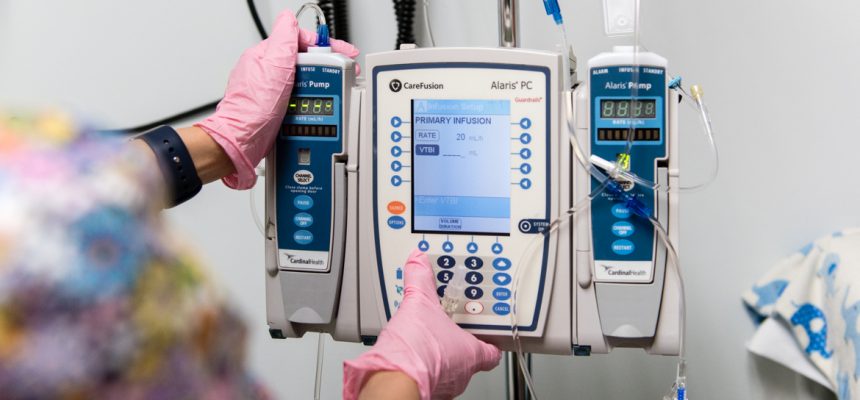Two Studies Find Hospitals Upcharge Cancer Bills
By Consumers for Quality Care, on March 12, 2018

Photo by Heidi de Marco/KHN
Two recent studies found that hospitals routinely inflate costs related to cancer care, sometimes charging upwards of five times more, MedScape reports.
A study by Martin A. Makary and colleagues, published in the American Journal of Managed Care (AJMC), found that hospitals routinely charge patients more for cancer care than the allowable amount under Medicare. The study found upcharges can be as high as 5.1 times the Medicare limits. It also found evidence of upcharging in radiology, hematology/oncology, medical oncology, pathology, and radiation oncology. Additionally, large, prestigious hospitals and medical centers partake in the large markups.
A second study, authored by Aaron Winn and colleagues and published in JAMA Oncology (JAMA), supported Makary’s findings. Winn’s study found that hospitals charge roughly twice as much for outpatient cancer-related services as physician offices.
These practices have a negative impact on consumers. Due to lack of transparency, consumers often have no way of knowing what their care costs will be. When they do know the costs, they may not know if there are options to reduce those costs.
Makary compared consumers’ interactions with the marked-up medical prices to car dealerships’ high listing prices for used cars.
He likened hospital pricing practices to the car sales game, where the dealer advertises manufacturer’s suggested retail price as “the sticker price,” in the knowledge that only the most uninformed and gullible of car shoppers will be willing to pay that amount rather than negotiate a fair price closer to the vehicle’s actual cost.
But in healthcare, “the reality is that there are groups in the United States that pay that price, and they tend to be facing those inflated bills at a very vulnerable time in their life,” he said.
Beyond the financial impact to consumers, the AJMC study commented on the moral implications of hospitals’ large markups for cancer care.
“On a moral level, we believe that it is unethical for a nonprofit medical center to put a patient with cancer into household bankruptcy because they cannot pay a bill inflated above what Medicare would pay for the identical service,” they write.
Ted Okon, the executive director of Community Oncology Alliance, noted that costs have become so exorbitant some patients now have to run their care plan by their banks before treatment.
Okon said that he has read about some hospitals that now require patients to get bank approval before a procedure, akin to a house buyer getting preapproved for a mortgage loan.
“The patient basically has to get, in essence, preauthorized by the bank, and the bank basically holds the bill. This is really troubling,” he said.




